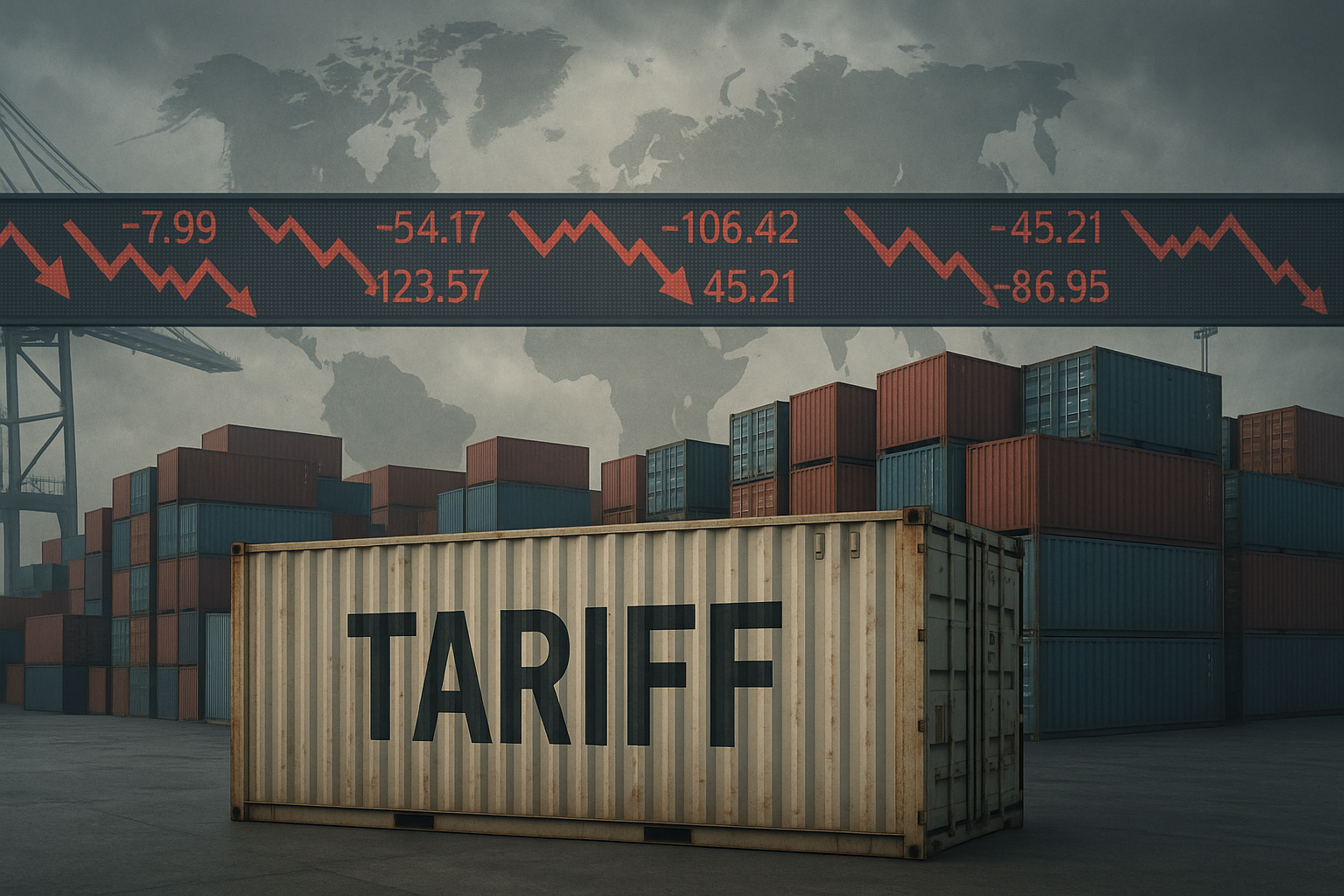Markets took a nosedive today as tariff concerns reared their ugly head again, reminding investors just how quickly geopolitical risks can upend market sentiment. This latest round of trade tensions highlights the precarious balance between economic growth and international politics.
We're navigating some seriously choppy waters in the global economy right now. Between shifting trade policies and escalating geopolitical tensions, it feels like we're walking a tightrope without a net. The renewed tariff threats have investors worried we might be heading back toward the trade wars of a few years ago.
The major indices all took hits, with the Dow dropping over 300 points and the S&P 500 sliding nearly 1.5%. Investors are watching nervously as the U.S. administration hints at new trade actions against key partners - with China, of course, at the top of the list.
These tensions don't stop at America's borders. European markets tumbled on the news, with export-heavy German stocks taking the biggest hit. Asian markets fared even worse - Japan's Nikkei dropped over 2%, while South Korea's KOSPI shed nearly 3%. Emerging markets, which depend heavily on exports, look particularly vulnerable right now.
"We're seeing the fragility of global supply chains exposed once again," trade economist Dr. Linda Zhou told me in a phone conversation this morning. "Companies spent the last few years trying to build resilience, but we're clearly not there yet."
Market strategist Michael Lee didn't mince words: "Investors hate this kind of uncertainty. You can analyze earnings and economic data all day, but geopolitical risks are almost impossible to price accurately."
What's driving these renewed tensions? It's complicated (isn't it always?). There's the obvious geopolitical rivalry between major powers, but domestic politics plays a huge role too. Politicians know that talking tough on trade often polls well, especially in election cycles.
As markets digest these developments, investors should keep a close eye on diplomatic channels and trade negotiations. These will be the leading indicators of whether we're heading for serious economic disruption or just experiencing another bout of market nervousness.
In my experience, diversification becomes even more crucial during periods like this. Different asset classes, different geographies, different sectors - spreading your bets helps cushion the blow when geopolitical storms hit. Stay informed, but don't panic. We've been through trade tensions before, and markets eventually adjusted.
